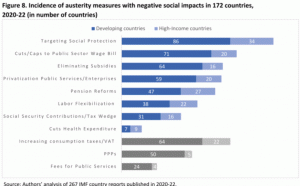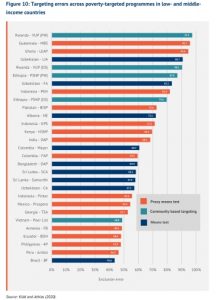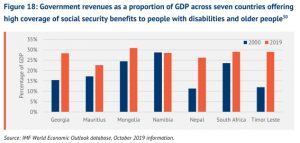I was alarmed to read a report in the Nigerian Observer, which told me that the World Bank was pressing Nigeria to ‘reduce the poverty net’.
If structural reforms are not implemented, Nigeria’s future looks bleak, per capita income will plateau, Nigerians will not have a full-time job by 2030 and if the employment rate does not improve, 23 million more Nigerians will live in extreme poverty by 2030,” according to the [World Bank’s] chief economist.
The report goes on to list the kinds of reforms that are being looked for: support for the private sector, ‘unlocking’ private investment, introducing ‘critical’ macroeconomic and structural reforms. That, on the face of the matter, looks like a call for ‘structural adjustment’ and a return to the ‘Washington Consensus’, which emphasised liberalisation, privatisation and fiscal discipline. Structural adjustment was not an unmitigated disaster – its effects were mixed – but it did lead to substantial hardship and in some cases created positive obstacles to development. One might have hoped it had been left behind in the 1990s.
As it turns out, however, this is not what the World Bank has been saying at all. The Bank’s Nigeria Public Finance Review bemoans the chaotic arrangements that characterise many of Nigeria’s current policies, but the central theme is very different: Nigeria needs to devote far more of its resources to public expenditure, and it needs particularly to expand its systems of social support. Yes, it calls for ‘fiscal adjustment for better and sustainable results’, but it also argues that ‘Nigeria’s social spending is too low, both in levels and as a share of budget resources’; that education and health provision is not enough to raise human capital; and that government and the states need to raise revenue substantially to pay for it. Nigeria has been shaping up to become one of the world’s largest poor countries – ‘the world’s second-largest poor population after India’. The World Bank’s policies have been misjudged at times, but this is not one of those times.


